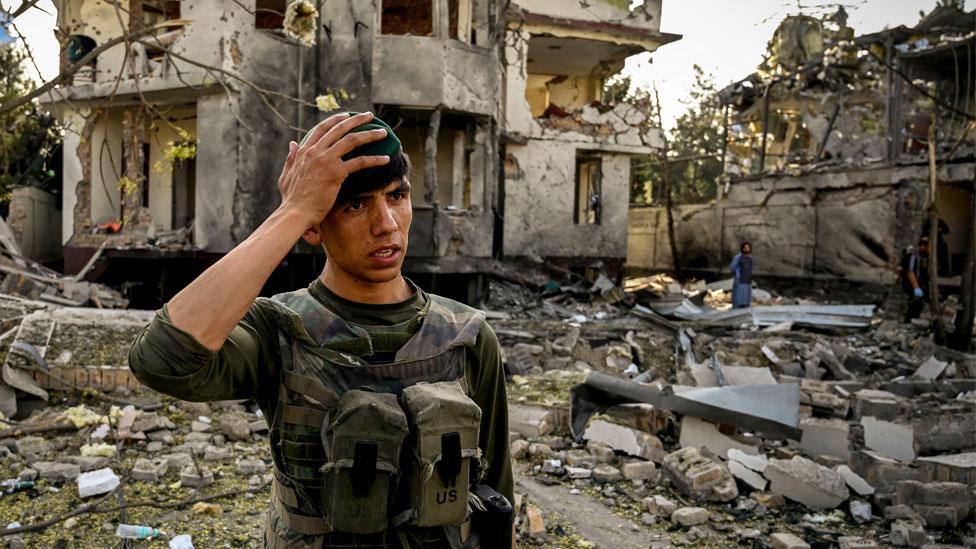Afghan presidential election: Tense wait after day of attacks
- Published
Election officials say only votes verified by biometric devices will be counted
People have voted in Afghanistan's presidential poll amid heavy security and deadly bomb attacks from militants.
Low turnout was widely reported, as many voters were worried about security following threats from the Taliban.
The twice-delayed vote on Sunday took place after Taliban-US peace talks had collapsed earlier this month.
The two main candidates are the incumbent, Ashraf Ghani, and chief executive, Abdullah Abdullah, who shared power since 2014.
More than 70,000 members of the security forces were deployed across the country to protect voters.
Despite the increased security, at least four people were killed and 80 wounded in bomb and mortar attacks on voting centres.
But in the southern city of Kandahar, women were seen standing in queues to vote, despite a bomb attack on a polling station.
Women voters make up 35% of the more than nine million Afghans registered to vote.
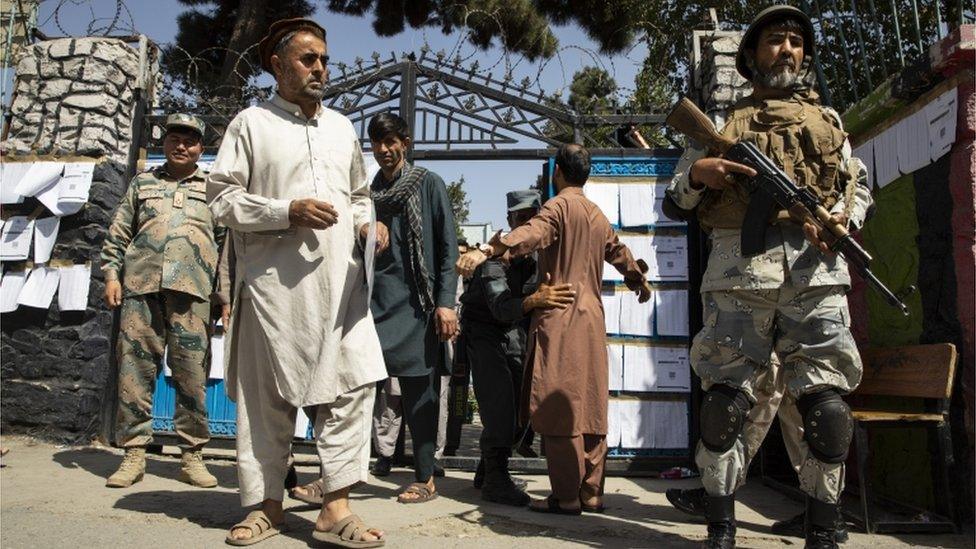
Security is tight at polling stations throughout Afghanistan
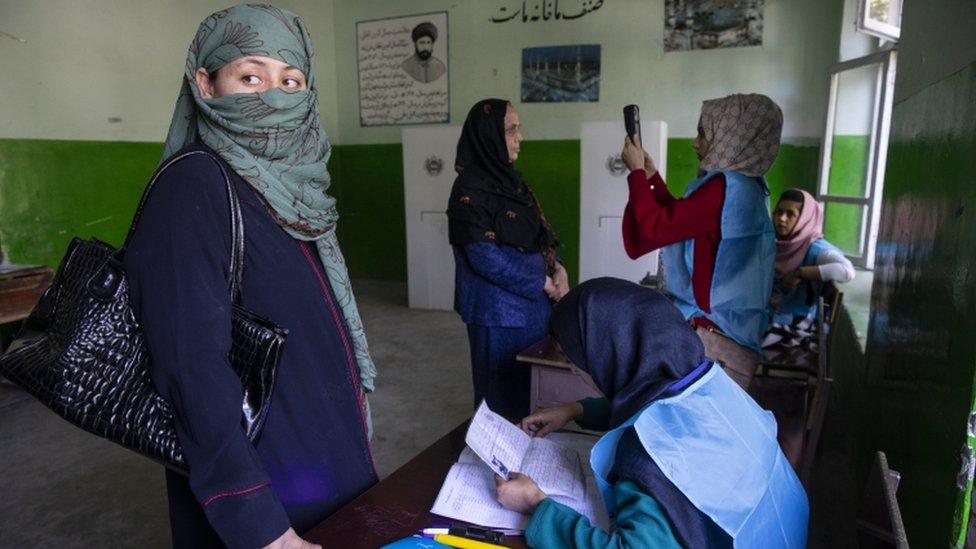
Women make up about 35% of those registered to vote
The Independent Election Commission of Afghanistan expects to announce the results in three weeks.
Turnout is thought to have been low, but one voter said she would cast her vote even if it meant standing in long queues for hours.
"Bravery is defined when one musters the courage to cast their vote in Afghanistan," said Roya Jahangir, a doctor based in the capital, Kabul.
"We hope this time there is no fraud - otherwise voters will feel cheated once again," she told Reuters news agency.
Authorities extended voting hours to ensure those queuing would have a chance to cast their ballot.
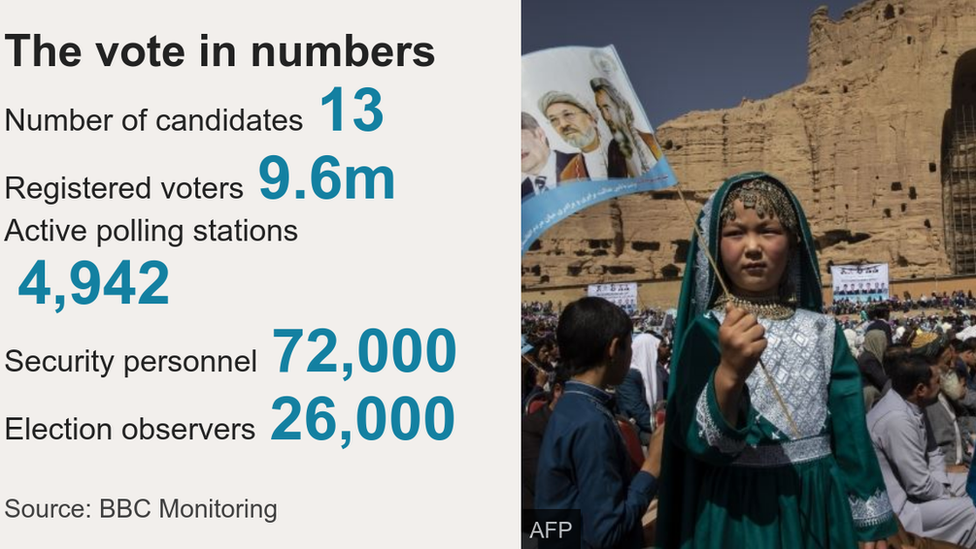

Disappointing turnout in elections
By Martin Patience in Kabul
It is perhaps a sign of how bad security has become in Afghanistan that officials hailed today's election as success because there was no major Taliban attack. Those that voted did so in defiance of the militants' threats.
But many people appear to have stayed away out of security concerns or because they've lost faith in a process that has previously been mired in vote-rigging.
The official results will not be known for several weeks.
But if the candidates do not accept them, they could trigger a political crisis that crushes this country's fragile democracy.

Why does this election matter?
Afghanistan's next president will lead a country devastated by four decades of war. The conflict continues to kill thousands of people every year, drawing in forces from around the world.
Nearly two decades since the international community intervened, the US has been trying to negotiate an end to the conflict with the Taliban.
The US currently has about 14,000 troops in Afghanistan, and there are thousands more from countries part of a Nato mission to train, advise and assist the country's security forces.
Whoever is elected president in the fourth election since US-led troops ousted the Taliban in 2001 should have a key role to play.


However, the Taliban currently refuse to negotiate directly with the Afghan government, saying it is illegitimate. They say they will only talk to Afghan authorities after a deal with the US is agreed.
Who sits at the head of Afghanistan's government matters to the people caught in the crossfire between the army, the Taliban and other insurgents.
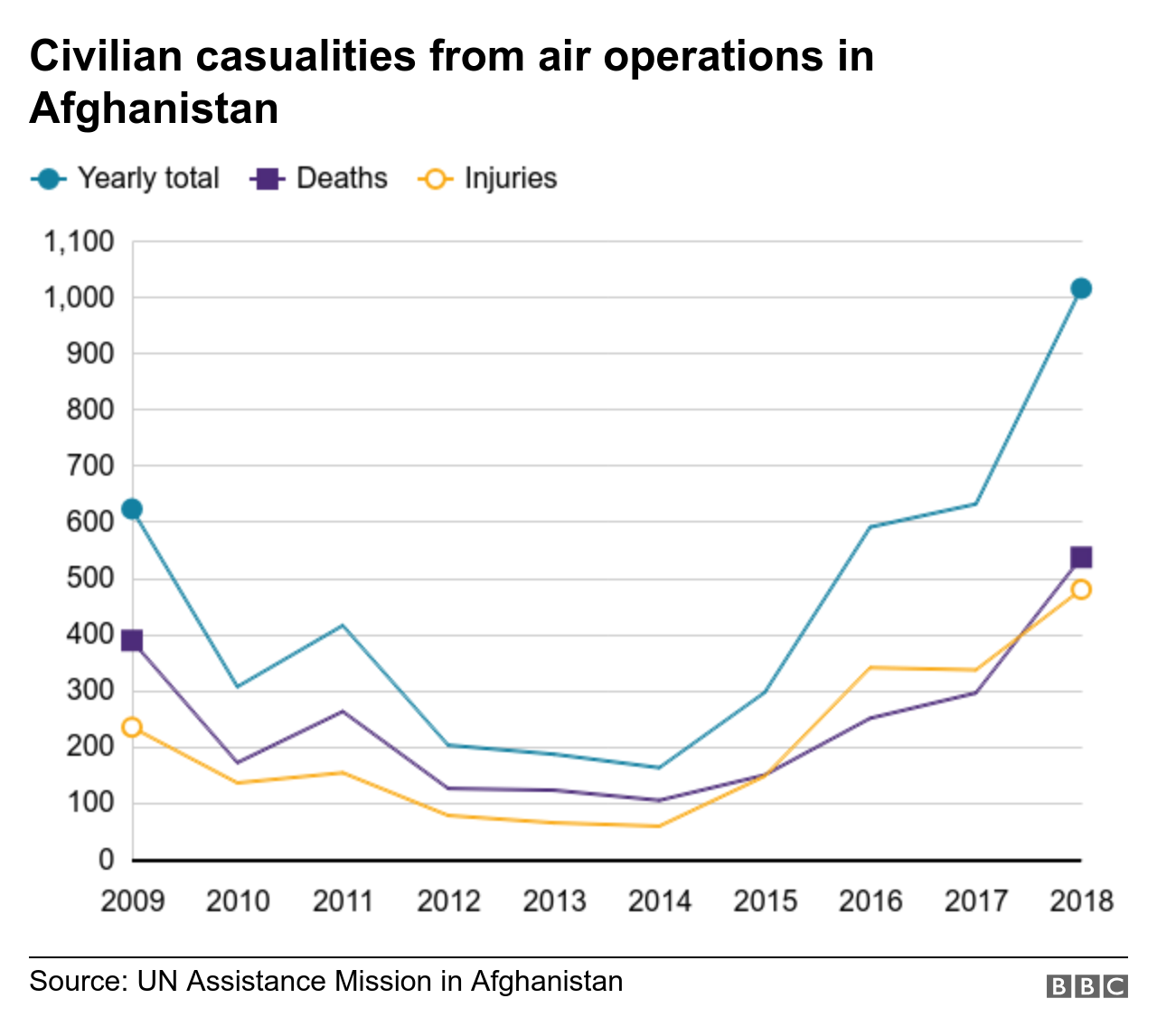

BBC research found an average of 74 men, women and children died in the conflict every day during the month of August across Afghanistan. A fifth of those killed were civilians.
According to the United Nations, more civilians were killed by Afghan and US forces in the first half of this year than by insurgents.
What are the other issues?
Five years ago, the presidential election was mired by allegations of fraud and vote-rigging. It took months to reach a result, with a deal between the two main contenders negotiated by the US ending in a "national unity government".
Hopes are not high that things will be better this time.
Out of a population of about 37 million, fewer than 10 million are registered to vote - and even fewer are expected to cast a ballot. A poll carried out by the Transparent Election Foundation of Afghanistan found more than half of respondents were not planning to vote.
This is in part due to threats of violence from the Taliban, who have said they will attack polling booths and have already targeted election rallies.
Is peace with the Taliban possible?
There are also large areas of the country under Taliban control, where the Kabul government has little to no power, and voting is all but impossible.
But a perceived lack of enthusiasm among voters is also attributed to a feeling things may not change for the better - not helped by the fact the same two men who fought for months over the top job in 2014 are the front-runners once again.
Both have been accused of corruption while in office. Meanwhile, unemployment stands at about 25%, according to the UN, and almost 55% of Afghans are living below the poverty line.
Who are the contenders?
Eighteen men - including former warlords, ex-spies and members of the country's former communist government - initially put themselves forward to fight the election, but five have dropped out.
Not one woman is running for president, and only three women appear on the tickets of others.
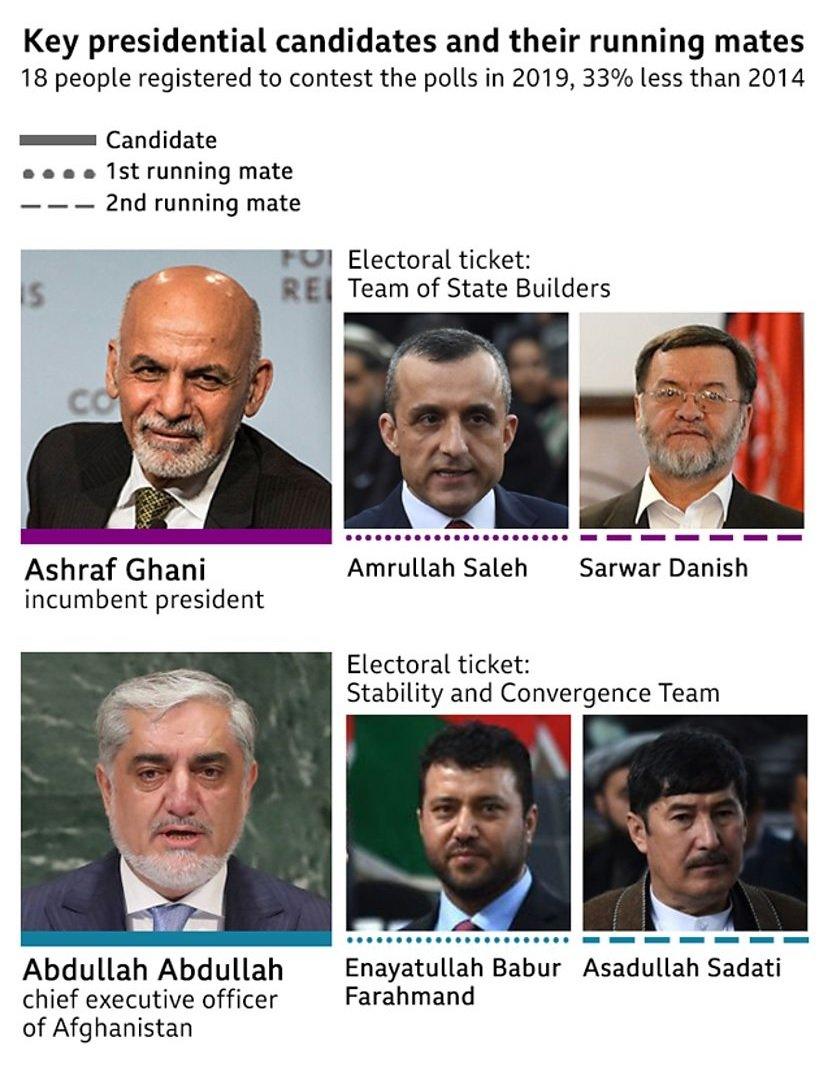

Read more:
- Published30 July 2019
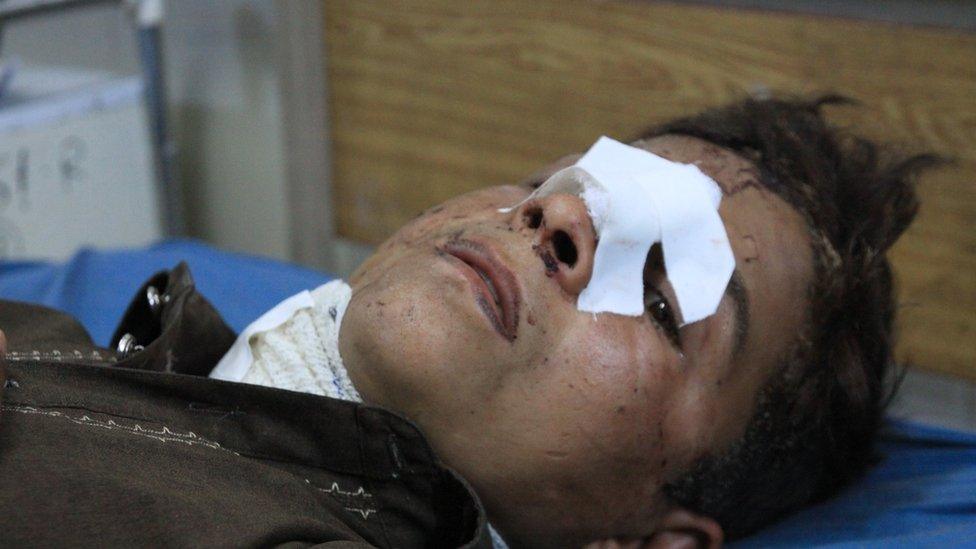
- Published8 September 2019
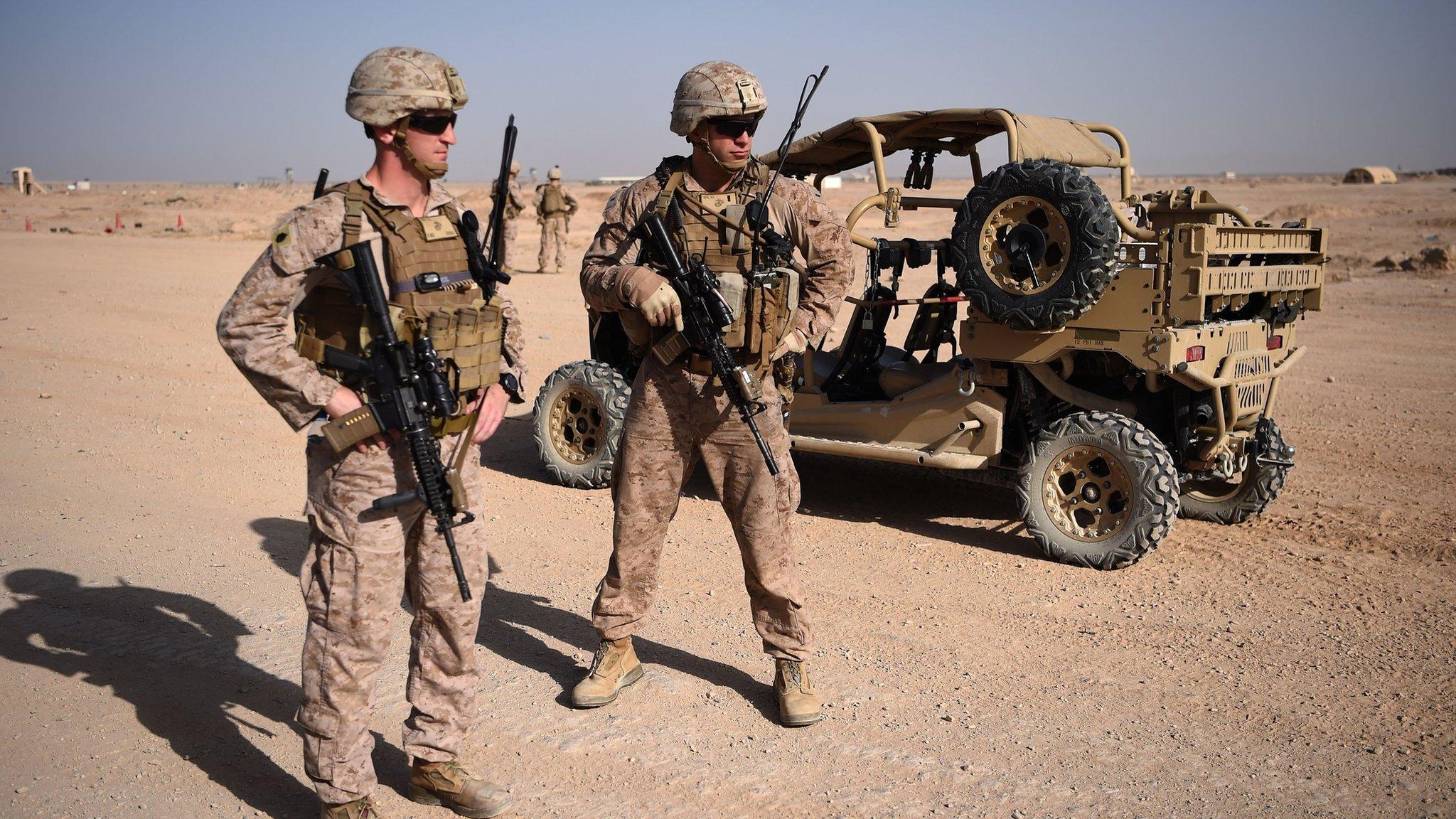
- Published30 August 2021
